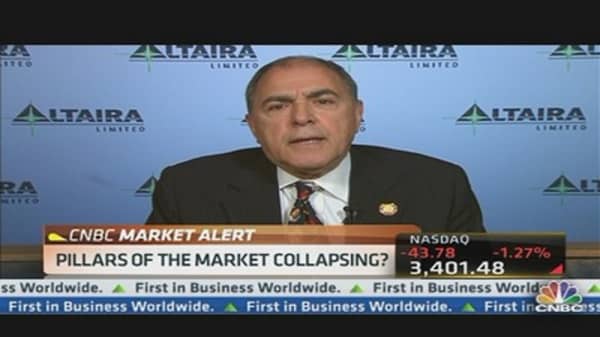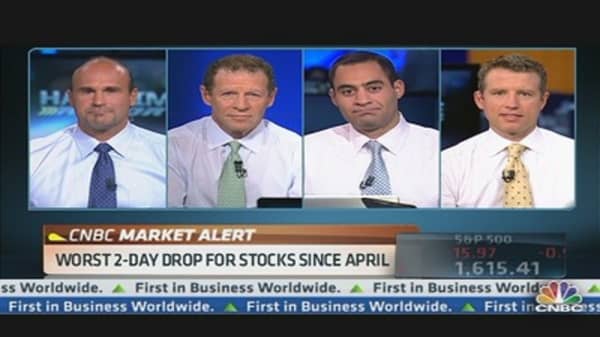"For most of the year, the best thing that could happen for the market was to get data that were not too hot and not too cold—that would drive the Fed to keep QE and continue to provide liquidity for the markets," said Michael Sheldon, chief market strategist at RDM Financial Group. "However, at some point, if the economic data start to deteriorate, then instead of bad news becoming good news, the bad news may just be bad news. In other words, if the economic data really start to turn lower, investors may start to wonder whether the Fed really has any power left to turn the economy around."
The private sector created just 135,000 jobs in May, according to the ADP National Employment Report, less than estimates for 165,000. The report came two ahead of the government's widely-watched monthly labor report, which includes both public and private sector employment. Economists surveyed by Reuters expect to see a gain of 170,000 jobs, slightly higher than the 165,000 jobs added in April.
Lee Hardman, a currency economist at Bank of Tokyo-Mitsubishi, noted that the ADP report has been an inaccurate predictor of nonfarm private payrolls so far in 2013, over or underestimating numbers by nearly 50,000 on average each month. Traders, however, have used the weak economic conditions to keep hopes up that the Federal Reserve will not back off its easing measures anytime soon.
(Read More: Traders Confused: Is Jobs Market Improving or Not?)
Meanwhile,the pace of activity in the services sector ticked slightly higher in May, according to the Institute for Supply Management's services index. A reading above 50 indicates expansion in the sector. However, a key employment measure slipped to the lowest level since last July.
"The ADP employment data and the employment component within the ISM services report, while not perfect, provide a hit that this month's employment data may be on the softer side," said Sheldon.
(Read More: Why Bad News Soon May Just Become...Bad News)
Meanwhile, economic expansion increased throughout the U.S. from April through mid-May, with eleven of the Fed's banking districts reporting "modest to moderate" growth, according to the Federal Reserve's latest region-by-region Beige Book survey.
In other economic news, factory orders rose 1 percent in April, recovering from a 4.7 percent drop in March, according to the Commerce Department. And unit labor costs tumbled 4.3 percent, while productivity rose 0.5 percent.





